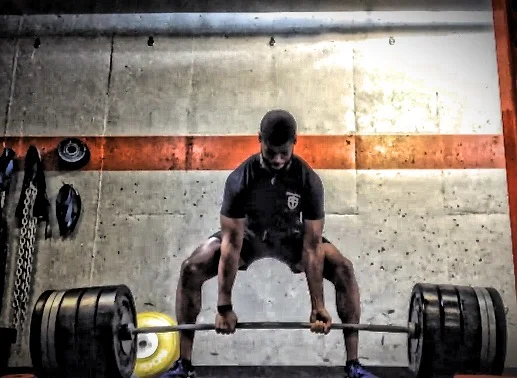Lifting for life, lifting for sport, and lifting for competition are all very distinctly different ways to lift. It is important to know which you are lifting for. In almost every situation people become so consumed in the numbers. They see Felix over there moving some serious weight and become infatuated with lifting the same amount of weight as him, disregarding whatever their own goals may be. I recently got into a heated discussion about which sports have the worst movers in the weight room. My friend argued that football players are easily the worst in the game. At first I was obviously a little butt-hurt, but he was right. I hate to generalize, but often football players are so concentrated on lifting a certain amount of weight that they usually compromise form to do so. This is completely understandable since strength and size are so important in football, however, it is no excuse.
No matter what purpose you are lifting for, form should never be compromised. If you let your form habitually go to shit, then injury is sure to follow.
Now, if you are lifting for life, as in you are lifting to build strength, stay strong and keep lean mass as you age. To look good naked, you will want to lift differently from those who compete in powerlifting, crossfit games, or for sport. If you are lifting for life, the overall emphasis is to have more energy, to f better, to be more aware, to be able to pick up your kids with more ease, or to move furniture without straining anything. Lifting for life is supposed to make everyday living better. Now, maybe this means you’ll need to be more conservative with timelines to reach certain strength goals. Maybe this means do not peak and test your one rep max every month. I love strength goals. I think it helps people get away from concentrating on the superficial short term goals and more toward the long term. However, if while on the journey to lift 500 lbs and your back becomes habitually sore when you wake up in the morning, maybe back off just a little bit. It’s your call, but just try to remember the purpose behind why you lift.
For all of you athletes out there, this part is for you. Do not get too concerned with the numbers. At the end of the day being good at your sport comes down to how good you are at your sport. There is a point where getting stronger no longer makes you run faster, jump higher, or hit harder. Find the sweet spot where you are as strong as you can be, you’re able to move well, you’ve formed a low risk for injury, and you have become as explosive as you can be. Spending time getting strong at something that doesn’t help your sports performance could be time better spent working on your sport itself. Just saying. A lot of times people get too obsessed with numbers in the weight room. Strength is important no matter what you are doing, but just know your sport isn’t lifting weights. Remember what you do it for. A good strength program should make you stronger, more explosive, resilient to injury and more in tune with your body. You do not want to get injured in the weight room. Be smart.
Lifting for competition is a little different than lifting for the other two reasons. When lifting for competition, as in crossfit or powerlifting, you have to push. You usually have to grind a little bit more. The focus is on how much weight you can move. Although I still believe form shouldn’t be compromised, there may be times where it happens. While the goal is to move the most weight possible, listening to your body is still smart. If you notice weights feeling heavy that felt lighter the week before back off a little to avoid overtraining. A program is never set in stone so just because it says you should hit a certain weight and number of reps on Tuesday does not mean you have to do it if you feel like shit. Learning to differentiate between something being hard and overexerting yourself is a very important lesson for success come competition day. Testing grip strength daily can be a good tool to see how your body is adapting and recovering from one workout to the next. Pay attention to how you feel, but definitely get after it.
We all go through phases in life so adapt your lifting accordingly. If you are training for a sport, for life, or for competition make sure you adjust your training to fit that lifestyle. I think everyone should experience all types of training at some point in their life. New experiences are always a great opportunity to learn and grow. This is how you discover the real Power of Strength.
